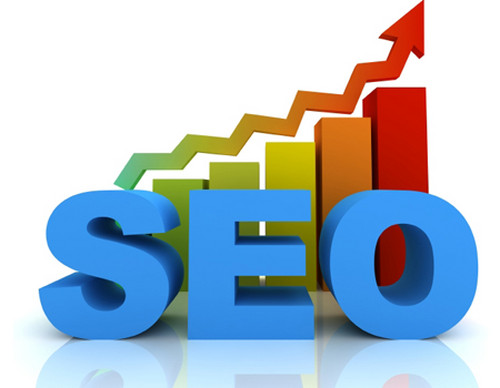Why SEO is Not Enough
Ready to boost your SEO ?

Why SEO is Not Enough
Search Engine Optimization [SEO] is a process used to increase page rank on a search engine results page. SEO refers to 'natural' or 'organic' search engine listings as opposed to paid listings that appear at the top and/or the right hand side of a page.
While SEO can be great at driving traffic to a site, it has much less value if a user isn't converted. Using traffic as a success metric for SEO is misleading, since the traffic might be the wrong audience resulting in a high bounce rate. Using a conversion metric [i.e. how many people were converted either by purchasing a product or completing a form] is a much better indicator of the success of an SEO program.
The diagram below outlines the SEO process for achieving conversions:

GOAL
We approach SEO with conversion in mind. A conversion is when a website visitor does something you want them to do e.g., fill out a form or buy a product. This means obtaining a high page rank is only one step in achieving the conversion goal since a landing page that does not convert a visitor is of little value.
PROCESS
Content Optimization
A successful SEO program depends on the quality and quantity of content. Google defines quality in terms of 'relevance' which is determined in two ways. First the content must match the keywords entered into the search field. These keywords must be used numerous times as well as in different places such as the title tag, paragraph copy, hyper links etc. All of these uses increase the page rank on a search engine results page.
The second way Google gauges relevance is by the amount of inbound links there are for a particular word. Inbound links can be thought of as 'votes'. The more inbound links, the more votes, the higher the page rank.
Other elements of optimizing content include:
* The physical structure of the site and how easy it is for a search engine to index the site contents
* How 'localized' the content is i.e. if the website content is in a language not native to the country where the searcher is searching from
* The quality of inbound links e.g., are they one way links, is the keyword used frequently on the website the link comes from etc.
Page Rank
Achieving a high page rank is the first goal. The difference between the 3rd position on Google and the 8th position is huge. Anything past the first page and the amount of traffic drops off dramatically.
It's also important to customize the text that is displayed on the search results page. This typically includes the Title and Description tags. Crafting this copy is critical to increasing the chances someone will click on the link.
However achieving a high ranking does not insure that the ultimate goal of SEO is achieved. If the page they land on is not designed properly or if they are sent to a page that is too vague [e.g., a Home page] then a conversion is less likely to occur.
Landing page
When a visitor moves from the search results page to a landing page they are often looking for very specific information. If the page is too complicated or the call to action too weak, the landing page will not produce a conversion.
Here are some guidelines for designing an effective landing page:
* Create a specific landing page for each keyword or groups of similar keywords that have achieved a high ranking on a search engine e.g., don't send people to the home page
* Extend the content on the search engine page to the landing page, leading the visitor through the sales funnel
* Keep the landing page simple, focused on one topic
* Make the call to action clear and easy to complete e.g. don't use more than 6 fields in a form
* Configure the analytics program to easily report the landing page conversion rate
* Perform 'A - B' testing using tools such as Google's Website Optimizer
Conversion
There are many types of conversions, including:
* A product is purchased
* A form is filled out
* A webinar is signed up for
* A Case Study is downloaded
* An interactive demo is viewed
In instances where the conversion is not e-commerce related it's important to capture the data in the most usable way. For instance if a short form is used to download a white paper. It's important that the data captured is stored in a database that sales reps can easily utilize.
According to a recent webinar produced by MarketingSherpa, SEO and e-mail marketing provide a quicker ROI than any other marketing initiatives, such as direct mail, trade shows and print advertising. Contact us if you would like to learn more about how SEO can improve your bottom line.
with a Booster program for Healthcare companies.

